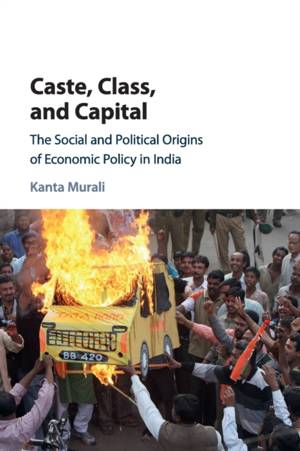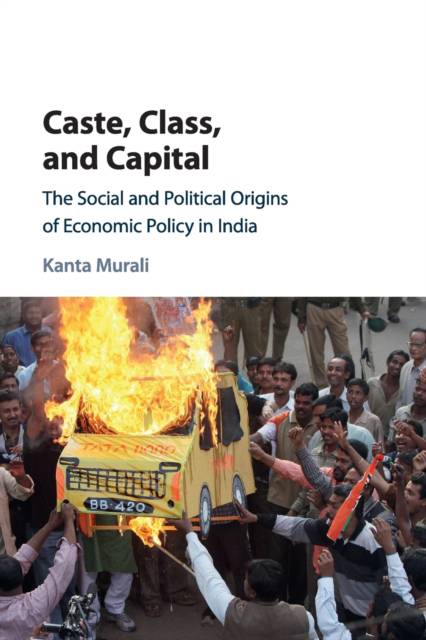
- Afhalen na 1 uur in een winkel met voorraad
- Gratis thuislevering in België vanaf € 30
- Ruim aanbod met 7 miljoen producten
- Afhalen na 1 uur in een winkel met voorraad
- Gratis thuislevering in België vanaf € 30
- Ruim aanbod met 7 miljoen producten
Zoeken
Caste, Class, and Capital
The Social and Political Origins of Economic Policy in India
Kanta Murali
Paperback | Engels
€ 64,95
+ 129 punten
Omschrijving
For millions of poor people in the developing world, economic growth offers prospects for improved well-being. But what are the political and social conditions conducive to growth-oriented policies in poor democracies? This book addresses this highly consequential question by focusing on a specific empirical puzzle - policy variation across Indian states in the competition for private industrial investment, a phenomenon that came to the fore after the country adopted market reforms in 1991. Through the analysis of investment policies, this book offers a novel explanation, which links social identity, class, and economic policy outcomes. Its main findings highlight a link between pro-business policies and exclusionary political trends in India's high growth phase, and offer a sobering perspective on the current model of growth in the country. The book adds to our understanding of Indian political economy as well as to the dynamics of economic development in poor democracies.
Specificaties
Betrokkenen
- Auteur(s):
- Uitgeverij:
Inhoud
- Aantal bladzijden:
- 316
- Taal:
- Engels
Eigenschappen
- Productcode (EAN):
- 9781316608173
- Verschijningsdatum:
- 22/11/2018
- Uitvoering:
- Paperback
- Formaat:
- Trade paperback (VS)
- Afmetingen:
- 152 mm x 229 mm
- Gewicht:
- 421 g

Alleen bij Standaard Boekhandel
+ 129 punten op je klantenkaart van Standaard Boekhandel
Beoordelingen
We publiceren alleen reviews die voldoen aan de voorwaarden voor reviews. Bekijk onze voorwaarden voor reviews.







